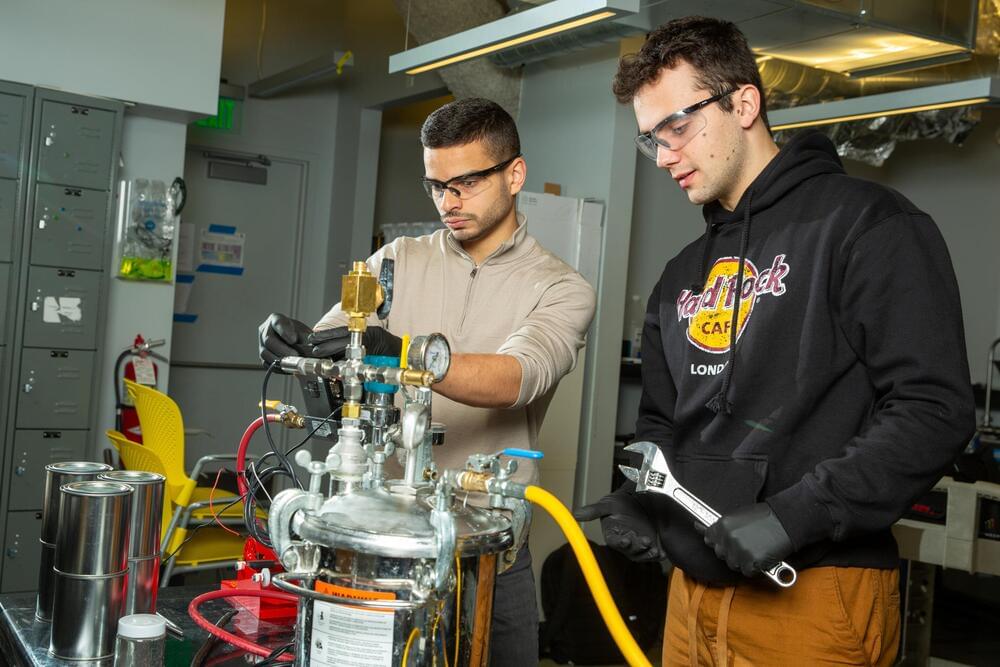A sustainable source for clean energy may lie in old soda cans and seawater. MIT engineers have found that when the aluminum in soda cans is exposed in its pure form and mixed with seawater, the solution bubbles up and naturally produces hydrogen—a gas that can be subsequently used to power an engine or fuel cell without generating carbon emissions. What’s more, this simple reaction can be sped up by adding a common stimulant: caffeine.
In a study appearing today in the journal Cell Reports Physical Science, the researchers show they can produce hydrogen gas by dropping pretreated, pebble-sized aluminum pellets into a beaker of filtered seawater. The aluminum is pretreated with a rare-metal alloy that effectively scrubs aluminum into a pure form that can react with seawater to generate hydrogen. The salt ions in the seawater can in turn attract and recover the alloy, which can be reused to generate more hydrogen in a sustainable cycle.
The team found that this reaction between aluminum and seawater successfully produces hydrogen gas, though slowly. On a lark, they tossed into the mix some coffee grounds and found, to their surprise, that the reaction picked up its pace.
